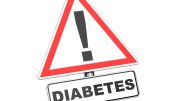
Post-COVID-19 patients, followed up within eight weeks, showed possible issues with memory, spatial awareness, and information processing.
COVID-19 patients suffer from cognitive and behavioral problems two months after being discharged from hospital, a new study presented at the 7th Congress of the European Academy of Neurology (EAN) has found.
COVID-19 patients suffer from cognitive and behavioral problems two months after being discharged from hospital, a new study presented at the 7th Congress of the European Academy of Neurology (EAN) has found.
Issues with memory, spatial awareness, and information processing problems were identified as possible overhangs from the virus in post-COVID-19 patients who were followed up within eight weeks.
The research also found that one in 5 patients reported post-traumatic stress disorder (PTSD), with 16% presenting depressive symptoms.
The study, conducted in Italy, involved testing neurocognitive abilities and taking MRI brain scans of patients two months after experiencing COVID-19 symptoms. More than 50% of patients experienced cognitive disturbances; 16%% had problems with executive function (governing working memory, flexible thinking, and information processing), 6% experienced visuospatial problems (difficulties judging depth and seeing contrast), 6% had impaired memory, and 25% manifested a combination of all these symptoms.
Cognitive and psychopathological problems were much worse in younger people, with the majority of patients aged under 50 demonstrating issues with executive functions.
In the whole sample, the greater severity of COVID-19 acute respiratory symptoms during hospital admission was associated with low executive function performance.
Additionally, a longitudinal observation of the same cohort at 10 months from COVID-19, showed a reduction of cognitive disturbances from 53 to 36%, but a persisting presence of PTSD and depressive symptoms.
Lead author of the study, Prof. Massimo Filippi, from the Scientific Institute and University Vita-Salute San Raffaele, Milan, Italy, explained, “Our study has confirmed significant cognitive and behavioral problems are associated with COVID-19 and persist several months after remission of the disease.”
“A particularly alarming finding is the changes to executive function we found, which can make it difficult for people to concentrate, plan, think flexibly and remember things. These symptoms affected three in 4 younger patients who were of a working age.”
No significant relationship was observed between cognitive performance and brain volume within the study.
“Larger studies and longer-term follow up are both needed, but this study suggests that COVID-19 is associated with significant cognitive and psychopathological problems,” concluded Dr. Canu, Researcher at the San Raffaele Hospital of Milan and first author of the study. “Appropriate follow-up and treatments are crucial to ensure these previously hospitalized patients are given adequate support to help to alleviate these symptoms.”
Other COVID-19 findings at the 7th EAN Congress:
The study is one of four scientific presentations on the neurological symptoms of COVID-19, an area of research that is fast emerging, from this week’s EAN Congress:
- Research, led by Dr. Mattia Pozzato of the Osperdale Maggiore Policlinico in Milan, found 77.4% of 53 patients reported developing at least one neurological symptom, and 46.3% presented with more than three neurological symptoms between 5-10 months after being hospitalized with COVID-19. The most common of these symptoms were insomnia (65.9%), daytime sleepiness (46.3 %), and walking difficulties. Other less frequent symptoms included headaches, hyposmia (a reduced ability to smell) and hypogeusia (loss of taste). The authors concluded 90% of patients had post-COVID-19 symptoms, and that neurological symptoms form a significant part of these.
- A research project presented by Professor Tamara S. Mischenko, Head of the Department of Neurology and Medical psychology at Karazin University, Ukraine, followed up 42 patients aged 32 to 54 after being hospitalized with COVID-19 after 2 to 4 months, finding that 95% had neurocognitive impairment symptom. All patients suffered from asthenic symptoms, increased fatigue, and anxiety/depression symptoms. Other symptoms included vestibular (balance) disorders, (59.2%), headaches, (50%), and reduced ability to smell (19%). Five patients also suffered ischaemic strokes in the two months after hospitalization from COVID-19.
- A study that looked at brain stem damage in COVID-19 patients from post-mortems showed a high percentage of neuronal damage and a higher number of small masses (called corpora amylacea) which are abundant in neurodegenerative diseases. Immunohistochemistry tests also revealed the presence of the virus in the brain stem. Measurements were compared with non-COVID-19 ICU patients. The author, Dr. Tommaso Bocci, a neurologist and neurophysiologist at the University of Milan’s Department of Neurological Science, said the study provides the first neuropathological, neurophysiological, and clinical evidence of the COVID-19-related brain stem involvement, especially at the medullary level, suggesting a neurogenic component of respiratory failure.









Spatial reasoning was constrained but vocabulary was hardest hit. I would form a sentence and hit a blank on a word, and couldn’t even remember what was supposed to go in that blank.
I also became very violent towards anti-maskers and conspiracy theorists, but have determined that is an adaptive survival trait and needs no correction. If they don’t feel safe, they can stay at home.